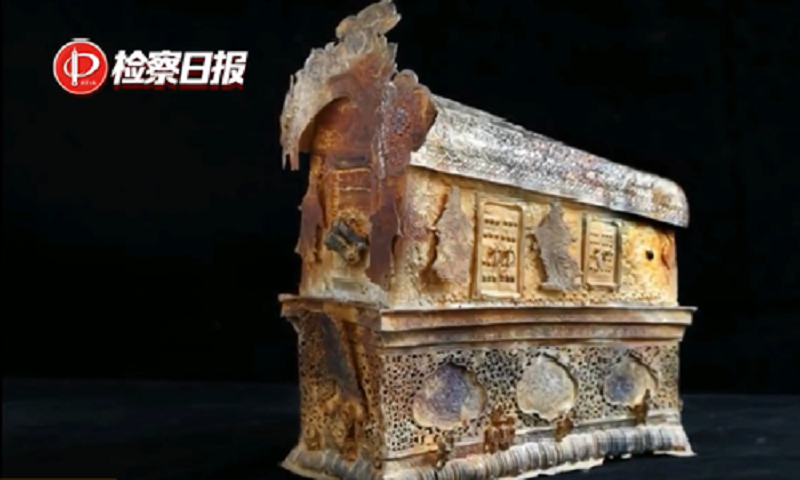
One cultural relic stolen by the gang from an ancient pagoda. Photo: Jiancha Daily
23 gang members were sentenced to prison terms in Northwest China's Shaanxi Province for excavating and stealing cultural relics from ancient cultural sites before reselling them. To hide their illegal actions, they operated restaurants near the target excavation sites.
The gang had robbed six ancient pagodas and one ancient tomb since 2011, which are located in Shaanxi Province as well as North China's Shanxi Province, and are all key cultural heritage sites under state protection.
In the daytime, they ran their businesses normally; however, at night, they dug tunnels from the restaurants in the direction of the sites to find the underground palaces, the Jiancha Daily reported.
They stole four first-class cultural relics and dozens of other important relics, including statues of Buddhas and golden coffins. Some of the gang members are prison mates or relatives of Wei Yonggang, the leader of the gang who was also jailed for stealing from ancient cultural sites.
The gang members were born in the 1960s, 70s and 80s, and took on different roles: some were in charge of organizing the excavation, some dug the tunnels and some sold the stolen relics, the verdict said. Among them, 13 have a previous criminal history, including intentional injury, robbery, kidnapping and theft.
The case triggered heated discussion on China's social media platforms, with many netizens wondering how they managed their time so effectively and found the underground palaces so accurately.
"It's really tiring to run a restaurant, how could they still have the energy to dig holes at night? I don't even want to talk or move after finishing work," one netizen sarcastically asked.
"They are so smart, but they didn't use their smarts in the right way, what a shame," another said.
Some said the stories in novels had come true and suggested that such crimes be punished severely to protect the cultural relics.

